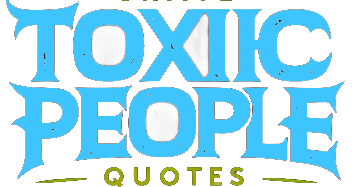Having a lower credit score can be a significant challenge when it comes to securing loans, credit cards, or even renting an apartment. A credit score of 420 is considered very poor and can limit your financial options. However, it's essential to understand that improving your credit score is possible with the right strategies and commitment. In this comprehensive guide, we will explore the reasons behind a low credit score, effective ways to increase it, and essential tips for managing your finances to reach a credit score goal of 420 and beyond.
Understanding Credit Scores
What Is a Credit Score?
A credit score is a three-digit number that reflects your creditworthiness based on your credit history. Lenders use this score to assess the risk of lending you money. The FICO score and VantageScore are the two most common credit scoring models in the United States, with scores ranging from 300 to 850.
Factors That Affect Your Credit Score
Several factors influence your credit score, including:
- Payment history
- Credit utilization
- Length of credit history
- Types of credit
- New credit inquiries
Why You Might Have a 420 Credit Score
Missed Payments
One of the most significant factors contributing to a low credit score is missed payments. Late payments or defaults on loans and credit cards can severely damage your credit score.
High Credit Card Balances
High credit card balances relative to your credit limits can also harm your credit score. This is known as credit utilization, and maintaining low balances can positively impact your score.
Limited Credit History
If you have a limited credit history or no credit accounts, it can be challenging to establish a higher credit score. Lenders need sufficient data to assess your creditworthiness.
Collections and Bankruptcies
Instances of collections or bankruptcies on your credit report can significantly lower your score and indicate higher risk to lenders.
Steps to Improve Your Credit Score
Review Your Credit Report
Start by requesting a copy of your credit report from the three major credit bureaus – Equifax, Experian, and TransUnion. Check for any errors or discrepancies that could be negatively impacting your score.
Make Timely Payments
Consistently making on-time payments is crucial for improving your credit score. Set up payment reminders or automatic payments to avoid missing due dates.
Reduce Credit Card Balances
Focus on paying down credit card balances to lower your credit utilization ratio. Keeping balances below 30% of your credit limit is ideal for boosting your score.
Establish a Credit History
If you have a limited credit history, consider opening a secured credit card or becoming an authorized user on someone else's account to start building credit.
Avoid Opening Multiple Accounts
While having a mix of credit types can be beneficial, opening multiple accounts in a short period can lower your average account age and appear risky to creditors.
Work with a Credit Counselor
If you're struggling to improve your credit on your own, consider working with a credit counselor who can provide personalized advice and guidance.
Tips for Managing Your Finances
Create a Budget
Creating a budget can help you track your expenses, prioritize debt payments, and identify areas where you can cut back to improve your financial situation.
Build an Emergency Fund
Having an emergency fund can prevent you from relying on credit cards or loans in times of unexpected expenses, helping you avoid further debt.
Monitor Your Credit Regularly
Monitoring your credit and staying informed about changes to your credit report can help you identify issues early and take action to address them promptly.
Avoid Cosigning Loans
Cosigning a loan for someone else can impact your credit if they fail to make payments. Avoid cosigning unless you are fully prepared to take on the financial responsibility.
Seek Professional Help if Needed
If you're overwhelmed by debt or struggling to make ends meet, consider seeking help from a financial advisor or credit counseling service to explore your options.
Frequently Asked Questions (FAQs)
1. Can I improve a credit score of 420 quickly?
Improving a credit score takes time and requires consistent effort. While some strategies can yield quick results, significant improvements may take several months to years.
2. Will settling accounts for less than the full amount help my credit score?
Settling accounts for less than the full amount can negatively impact your credit score, as it indicates that you did not fulfill the original agreement with the creditor.
3. How long do negative items stay on my credit report?
Most negative items, such as late payments or collections, can stay on your credit report for seven years. Bankruptcies may remain on your report for up to ten years.
4. Should I close old accounts to improve my credit score?
Closing old accounts can shorten your credit history and potentially lower your score. It's often better to keep accounts open, especially if they have a positive payment history.
5. Can professional credit repair services help me raise my credit score?
While some credit repair services can assist in addressing errors on your credit report, be cautious of companies that promise quick fixes or charge high fees for their services.
In conclusion, achieving a credit score of 420 or higher requires dedication, discipline, and a solid understanding of your financial habits. By following the steps outlined in this guide and implementing effective financial management strategies, you can work towards improving your credit score and unlocking greater financial opportunities in the future.

